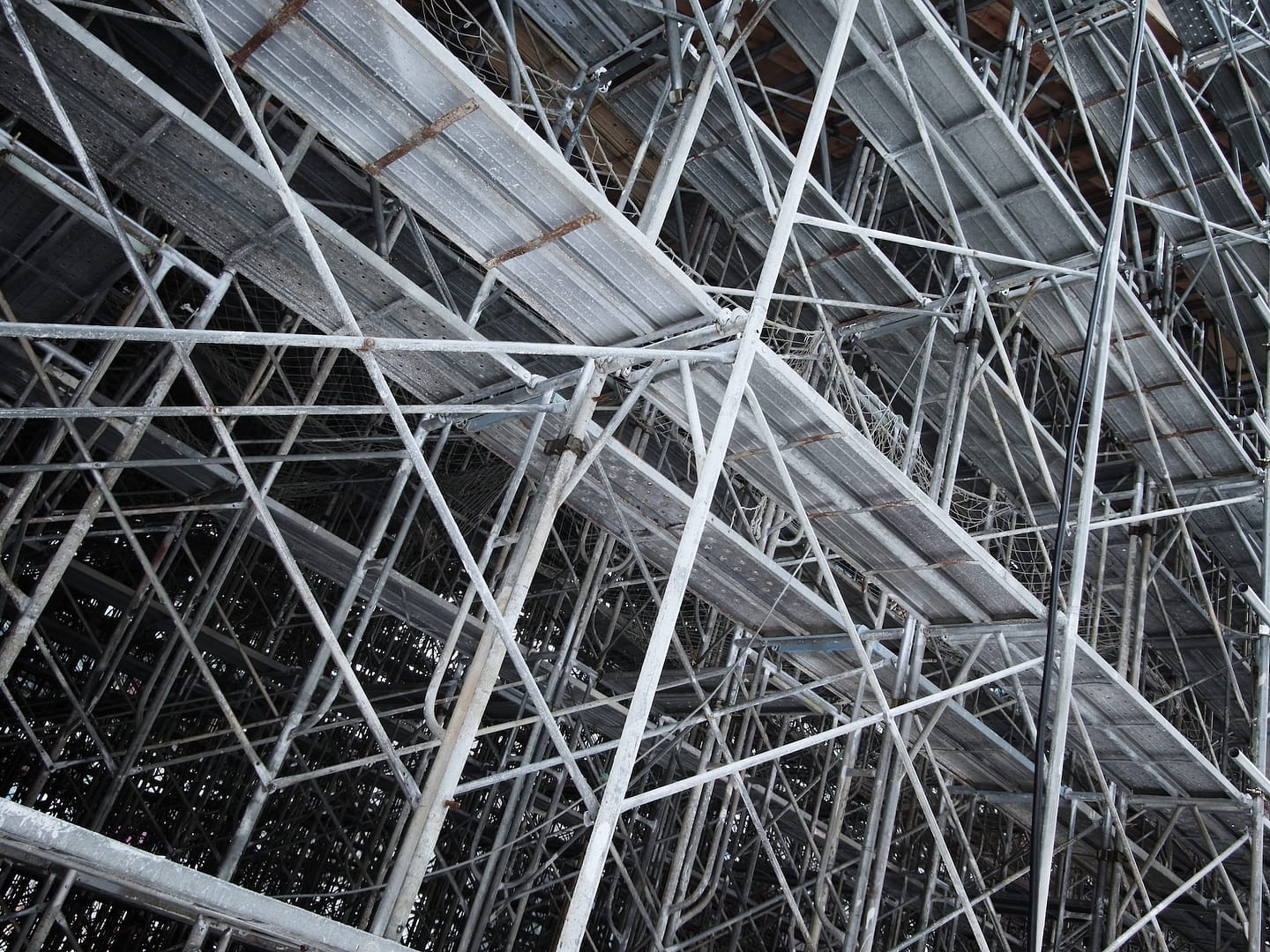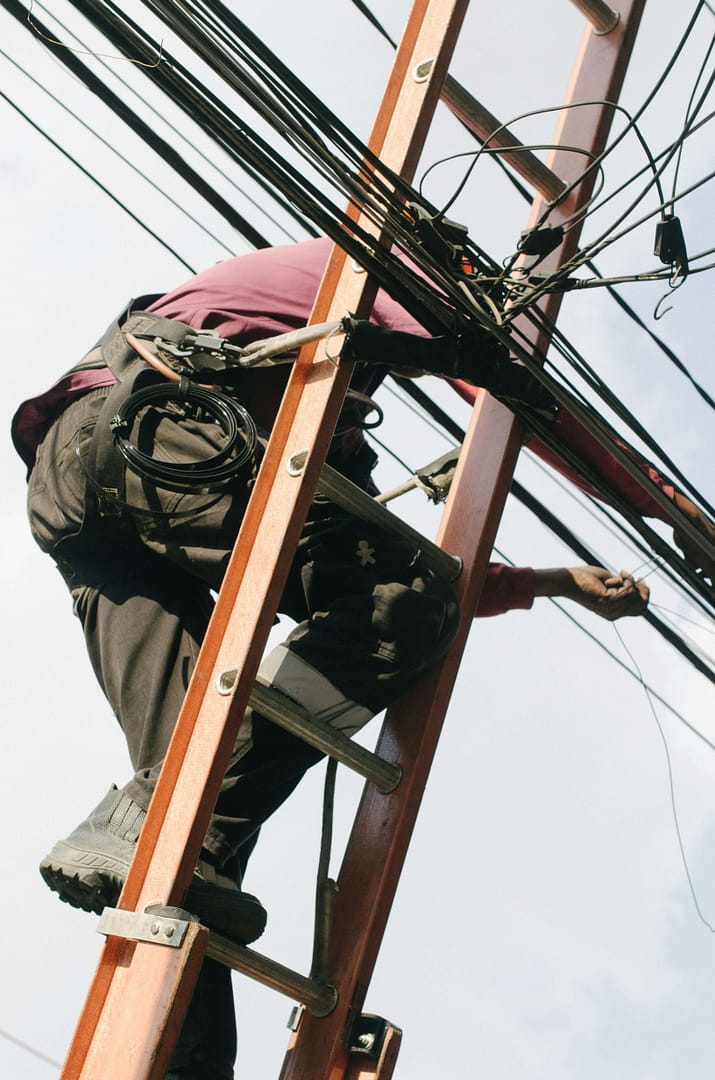Workplace Accidents are an unfortunate part of life, but when they happen at the workplace due to ladder and scaffold mishaps, they can lead to serious consequences. In Scotland, just like anywhere else, individuals who suffer injuries in ladder and scaffold accidents may wonder what their legal rights are and how they can seek justice. In this article, we will delve into the common causes of ladder and scaffold accidents, the legal rights of those affected, and what you can do if you find yourself in such a situation.
The Common Causes of Workplace Accidents: Ladders under Scrutiny
Ladders, while a common tool in many workplaces, are often improperly used, leading to a significant number of accidents. While accidents involving ladders can happen for various reasons, the improper use of ladders is indeed a common cause.
Workers may underestimate the risks associated with ladder use, believing that a quick climb to reach a high shelf or complete a task is harmless. However, the truth is that ladder accidents are far more frequent than we might imagine.
In Scotland, just as in the rest of the UK, ladder accidents occur across a wide range of industries. It’s not limited to the construction sector but can also happen in offices, warehouses, and even homes. The lack of proper training, overreaching, using a damaged ladder, and neglecting safety measures are some of the key contributors to ladder accidents.
Legal Rights in Scotland: Understanding Your Options
If you or someone you know has been involved in a ladder or scaffold accident in Scotland, it’s crucial to understand your legal rights and options. The first step is to seek medical attention, ensuring that your injuries are properly documented. Once you’ve addressed your immediate health concerns, you can explore the legal avenues available to you.
Work-Related Accidents: Your Rights as an Employee
In Scotland, employees have certain rights and protections when it comes to workplace accidents. Employers are obligated to maintain a safe working environment and provide proper training for the use of tools and equipment, including ladders and scaffolds. If they fail to meet these obligations, employees have legal recourse.
Health and Safety Regulations: Scotland follows UK health and safety regulations that require employers to ensure the safety and well-being of their employees. Failure to do so can result in penalties and legal action.
Compensation Claims: If you’ve been injured in a ladder or scaffold accident, you may be entitled to compensation for medical expenses, lost wages, and pain and suffering. To initiate a compensation claim, you will typically need to prove that your employer’s negligence or disregard for safety regulations led to the accident.
Workers’ Rights: Workers in Scotland have the right to refuse work that they believe is unsafe. If you feel that your employer is forcing you to use an unsafe ladder or scaffold, you have the legal right to refuse the task.
Reporting and Documentation: It’s crucial to report any ladder or scaffold accidents to your employer immediately. Ensure that the incident is documented, as this can be valuable evidence in any legal proceedings.
Personal Injury Claims: Exploring Legal Recourse
If you’re not an employee, but rather a visitor, customer, or contractor at a workplace where a ladder or scaffold accident occurred, you still have legal rights in Scotland. Personal injury claims can be filed to seek compensation for your injuries.
Negligence: To win a personal injury claim in Scotland, you must establish that the property owner or occupier was negligent in their duty of care. This includes maintaining safe premises and taking necessary precautions to prevent accidents.
Duty of Care: The person responsible for the premises where the accident occurred has a duty of care towards visitors. If this duty is breached, and it results in an accident, you may be entitled to compensation.
Statute of Limitations: It’s important to note that there is a time limit for filing personal injury claims in Scotland. In most cases, you have three years from the date of the accident to initiate legal proceedings.
Construction Accidents Involving Scaffolding in Scotland
While ladders are common tools in various workplaces, scaffolding is a critical element in the construction industry. Scaffolds are used to provide workers with access to elevated areas, but they also introduce unique safety challenges. Scaffolding accidents can be particularly severe, often resulting in life-changing injuries.
The Role of Safety Regulations in Scaffold Accidents
Construction accidents involving scaffolding are prevalent in Scotland, as they are in the rest of the UK. These accidents often result from a combination of factors, including:
Lack of Proper Training: Inadequate training for scaffold use is a significant contributing factor to accidents. Workers may not be aware of the proper assembly, usage, and inspection of scaffolds.
Poorly Maintained Scaffolds: Neglecting regular inspections and maintenance can lead to scaffold failure. Defective parts or structural weaknesses can result in a catastrophic collapse.
Environmental Factors: Weather conditions, such as strong winds and rain, can make scaffolding more dangerous. These factors are sometimes beyond anyone’s control, but it’s the responsibility of the construction site management to ensure that workers are not exposed to unnecessary risks.
Legal Recourse for Scaffold Accidents
Workers who are injured in scaffold accidents in Scotland have legal rights, and they can seek compensation for their injuries. These rights are governed by the same health and safety regulations and workers’ rights mentioned earlier. Additionally, there are specific regulations that pertain to scaffolding in the construction industry.
The Work at Height Regulations 2005: These regulations outline the legal obligations of employers and those in control of work at height. They require that work at height is properly planned, organised, and supervised. Employers must ensure that the appropriate equipment is used, including safe scaffolds.
PUWER (Provision and Use of Work Equipment Regulations) 1998: These regulations require that work equipment, including scaffolds, is suitable for the intended purpose and maintained in a safe condition.
Construction (Design and Management) Regulations 2015: These regulations impose specific duties on construction projects, ensuring that safety is an integral part of the design and management process.
Making a Personal Injury Claim with National Claims
At National Claims, we understand the complexities of personal injury claims in Scotland. Our experienced solicitors are dedicated to helping individuals who have suffered injuries in ladder and scaffold accidents. Here’s how we can assist you through the claims process:
Free Consultation: We offer a free initial consultation to evaluate your case. During this consultation, we will discuss the details of your accident and injuries, helping us understand the strength of your claim.
Investigation and Evidence Gathering: Our team will investigate the circumstances of your accident, gather evidence, and build a compelling case on your behalf. This may include collecting witness statements, obtaining medical records, and assessing the extent of your damages.

Conclusion
Accidents involving ladders and scaffolds are unfortunately all too common in Scotland and throughout the UK. They often result from negligence, inadequate training, and a lack of adherence to safety regulations. Understanding your legal rights in the event of such accidents is crucial, whether you are an employee or a visitor to a workplace.
Remember that in Scotland, health and safety regulations are in place to protect workers and visitors alike. If you’ve been injured in a ladder or scaffold accident, you have the right to seek compensation for your injuries and losses. Seeking legal assistance from experienced solicitors who specialise in personal injury cases can be instrumental. At National Claims, we are here to guide you through the process and advocate for your rights to ensure you receive the compensation you deserve.
Start your claim with us today and speak to one of our claims specialists by contacting us.
Click below to see why we are one of the most trusted claims management companies in the UK.

We’re proud of our excellent customer reviews
We thrive on delivering exceptional service and ensuring our clients’ satisfaction. Don’t just take our word for it. Check out some of our independent reviews to see what our clients have to say.
Excellent

This firm is excellent, they sorted out my car pay out and injury claim very fast, they always communicate with you all the time.

My accident case was dealt with confidence and with great result of the outcome, especially James kept me informed all the time.

I was very impressed at the way my inquiry was treated. I was listened to attentively and everything I needed to know was explained to me.






